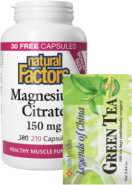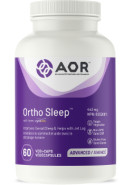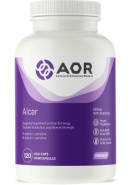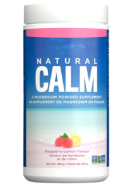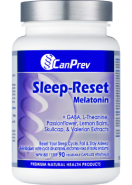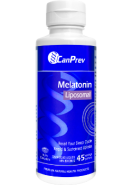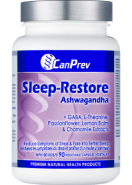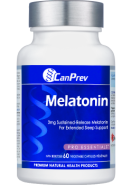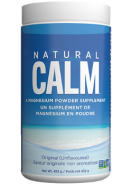Somnisense - 90 V-Caps - Womensense
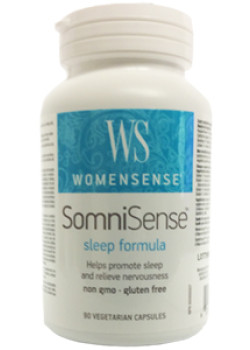
We're sorry, we no longer carry this item.
Check These out
Suggested, Similar, & Related Products:
Or, Shop our Latest Deals:
Shop Now >- 125 mg
- Passionflower 4:1 extract (Passiflora incarnata) (herb top)
- 62.5 mg
- California-poppy 4:1 extract (Eschscholzia californica) (herb top)
- 75 mg
- Skullcap 4:1 extract (Scutellaria lateriflora) (herb top)
- 50 mg
- Linden 5:1 extract (Tilia cordata) (flower)
Microcrystalline cellulose, vegetable capsule (carbohydrate gum [cellulose], purified water), crataegus monogyna fruit (hawthorn berry), vegetable grade magnesium stearate (lubricant), silica
Format
 Veggie Caps
Veggie Caps
90 Vcaps
Dosage
Take 2-4 capsules with food 1 hour before bedtime or as directed by a health care practitioner.
Important Information
Does not contain artificial preservatives, colours, or sweeteners; no dairy, starch, sugar, wheat, gluten, yeast, soy, corn, egg, fish, shellfish, animal products, salt, tree nuts, or GMOs. Suitable for vegetarians/vegans. Consult a health care practitioner if sleeplessness persists continuously for more than three weeks (chronic insomnia) or if symptoms persist or worsen. Consult a health care practitioner prior to use if you are breastfeeding or taking cardiac glycosides such as digitalis/digoxin or blood pressure medication. Do not use if you are pregnant. Some people may experience drowsiness. Exercise caution if operating heavy machinery, driving a motor vehicle, or if you are involved in activities requiring mental alertness. Keep out of reach of children.
- Help relieve symptoms of stress, nervousness, and sleep disorders
- Provides a natural sleep aid and mild sedative
- Provides mild analgesic action to help reduce physical discomforts at bedtime
- Supports cognitive health through healthy sleep promotion
- Suitable for vegetarians/vegans.
Related Videos
No Related VideosArticles by a naturopathic doctor.
WomenSense formulates top quality natural supplements to support women’s health. Popular products like AdrenaSense support adrenal health and balancing, BladderSense, Biosil Silica to support collagen production, joints, skin and nails, Black Cohosh supporting Menopause, plus many more! Buy WomenSense to support all your women’s health needs with quality supplements.
SLEEP
Read on to discover how you can help yourself get a good night's sleep...
Nothing replaces a good night's sleep. When you wake after one, you feel refreshed, energized, motivated and happy. Waking after tossing and turning for most of the night can make you feel the exact opposite. Unfortunately for a lot of people, they may wake feeling as if they hadn't slept at all, which leaves them unable to get a good start on the day.
Sleep Cycles and Stages
Sleep occurs in 5 different stages. Our sleep naturally cycles several times throughout the night through a variety of these stages, and not necessarily in numerical order. In fact, the numbers can skip around quite a bit. In general, sleep cycles through these stages four or five times a night.
1. Beginning stage, light sleep. Aren't aware you are asleep. 5 - 10 min.
2. Falling deeper - body temp decreases and heart rate slows. 20 min.
3. Transitional period between light and very deep sleep. Varies
4. Deep sleep. Time when sleep walking and bed-wetting occur. 30 min.
5. REM (rapid eye movement) sleep. Dreaming occurs. Increases
Sleep and the Brain
We require sleep to rest and repair our bodies and our minds. It is thought that most of the sleep cycles are required for repairing the physical functions of our bodies, but that REM sleep is required for restoring our mental functions. Sleeping for an insufficient length of time does not allow the body to achieve sufficient REM sleep, and we cannot mentally rejuvenate. Since we also integrate our daily learning and store short-term knowledge in our long-term memory during our sleep, it is even more important for children to get sufficient sleep while they are growing and learning at exponential rates. Many bodily processes are regulated by sleep - for example production of certain neurotransmitters and hormones. If the specific glands and cells do not receive the correct messages produced by sleeping, then these important substances may not be properly produced. Depression may result in the case of neurotransmitter deficiency. Fatigue or anxiety may result in the case of insufficient adrenal or thyroid hormones.
Sleep and Repair
During the time we are sleeping, our body is still quite active on the cellular level. As stated above, this is a time when many hormones and neurotransmitters are produced and stored for later use. Also, the body takes this time to heal and rebuild our bodies from any trauma or stress from the previous day's activities.
Our muscles repair themselves, and gain strength from the previous day's use, and any cuts, bruises or other wounds are allowed to heal. Without this time of rejuvenation, our body cannot keep up with the constant daily insult, and we begin to feel the physical effects that we associate with aging. Giving your body sufficient sleep can help to reduce these effects and leave you feeling revitalized. Maybe there's something to the phrase "getting your beauty sleep".
Sleep Requirements
There is no one correct amount of sleep for everyone. Each person has unique needs based on their own physiology, genetics, age, and physical and mental-emotional stress levels. In times of learning, stress, high activity, or growth our bodies require more sleep than they normally would. Please see the chart below for general daily sleep guidelines based on age:
SLEEP REQUIREMENTS BY AGE
INFANTS Birth - 2 Months - 12 - 18 hours
BABIES 3 - 11 Months - 14 - 15 hours
TODDLERS 1 - 3 Years - 12 hours
CHILDREN 3 - 5 Years - 11 - 13 hours
YOUTH 5 - 10 Years - 10 - 11 hours
ADOLESCENTS 10 - 17 Years - 8.5 - 9.5 hours
ADULTS 18 Years + - 7.5 - 9 hours
Many people fail to achieve the required number of hours of sleep in a day. As we age, it becomes more difficult to get a full night's sleep, so napping during the day can help to fill any gaps. Any time we fail to achieve the required amount of sleep, our bodies are unable to fully repair and a "sleep debt" accumulates.
Sleep Debt
When we fail to get enough sleep for our body to heal, repair and mentally integrate the previous day, it is a condition known as "sleep debt". As the phrase implies, the effects of insufficient sleep accumulate over time, and leave a backlog of healing processes unfinished. Eventually, the body requires a sleep repayment, such as a night of sleeping extra hours or increased napping during the day so it can catch up with integration and repair. Most of us are familiar with sleeping for several extra hours on a weekend to make up for lack of sleep during a busy week. This is an example of repaying your sleep debt. Failing to repay your sleep debt over time can result in sleep deprivation, a condition that can result in a number of problems.
Sunlight and Sleep
Ever wonder how your body knows when to sleep and when to wake up? Why do you get hungry and active during the day, but want to be still and relaxed at night? The body's daily rhythms, called circadian rhythms, dictate all of these functions. These rhythms are tied to the exposure of our eyes to sunlight during the day and darkness at night. In fact, as the light dims towards the end of the day, the body begins to produce increasing amounts of the hormone melatonin, which is responsible for our "feeling sleepy". Thus, being exposed to light, even artificial light, can reduce the amount of melatonin produced in our brains and disrupt the natural sleep cycle. This effect is most pronounced when the light is in the blue spectrum and comes from above eye level, instead of below. The most common understanding of disturbance of the natural circadian rhythm is the condition we know as "jet lag", in which a person changes their circadian rhythm by exposing themselves to a different light-dark schedule by flying in or out of a different time zone. This can often result in sleep difficulties, fatigue, and mental confusion until the body can adapt, and re-establish its natural pattern.
Sleep Hygiene
Maintaining regular sleeping habits is an essential component of healthy sleep. Go to bed only when you are tired and do not stay in bed if you are not sleepy. Use the bedroom only for sleep and sex. Get up at the same time each day. Do not nap unless it is a daily routine and exercise during the day but not before bed. Take a hot bath or shower 1-2 hours before bed. Keep the bedroom dark, quiet and comfortable. This may require covering alarm clock lights and unplugging other electronic devices nearby. If necessary, use a white noise machine to generate background noise. Put worries out of your mind and think of positive things. For occasional sleeplessness try herbal combinations or melatonin.
What you can do to sleep better:
-Help your body control stress with exercises like tai chi and yoga.
-Take supplements to optimize neurotransmitter production like melatonin and 5htp.
-Take supplements to support adrenal health.
-Do not drink coffee, black tea, or cola; they all contain caffeine
-Eat plenty of fresh vegetables
-Do not eat too late in the evening.
-Maintain a regular sleep cycle.
-Use relaxation techniques like self hypnosis
Sleep Problems
Because of its extremely important role in our lives, lack of sleep quickly takes a toll on one's body and mind. Not getting enough sleep can quickly lead to mood disorders, memory loss, reduced healing, poor stress-management and physical complaints. There are a number of different conditions that can affect sleep, a few of which we have listed below:
Apnea
During sleep, some people have a condition called sleep apnea, in which they stop breathing for a period of time that can last anywhere from a few seconds to a few minutes. These pauses can occur anywhere from 5 to 30 or more times in a single hour, and are often followed by a loud, snort or choking sound, after which normal breathing resumes. This condition can be associated with significant sleep disturbance, and can cause daytime sleepiness and fatigue. Some signs and symptoms are: morning headaches, irritability, mood-swings, depression, sexual dysfunction, and learning or memory difficulties. When left untreated, sleep apnea increases the risk of a number of different health conditions, such as: cardiovascular disease, high blood pressure, heart arrhythmias, diabetes, and mental decline.
Insomnia
Insomnia is a condition of habitual sleeplessness that affects approximately one in ten individuals and becomes more common as we age. It can involve either the inability to fall asleep, or the inability to stay asleep, or both. Some causes of insomnia include: use of stimulants like caffeine or antihistamine, evening eating, evening exercise, shift work, an uncomfortable sleep environment, a weak bladder, and mental-emotional causes such as worry, grief or stress. Chronic insomnia is usually caused by a medical condition such as hypoglycemia, hyperthyroidism, restless leg syndrome, arthritis, indigestion or breathing disorders like sleep apnea. Half of all chronic insomniacs suffer from depression or another psychological disorder.
Narcolepsy
This nervous system disorder causes excessive sleepiness and can result in frequent daytime attacks of sudden sleep. It can also have symptoms of sleep paralysis and cataplexy, a condition where strong emotions cause sudden loss of muscle function and collapse. The cause of narcolepsy is not currently known, although it appears that there is a genetic component. Conventional treatment uses antidepressants and stimulants to support narcoleptics. It is often beneficial to attempt to control the symptoms naturally using proper lifestyle habits.
Restless Leg Syndrome (RLS)
This condition is not directly related to sleep, although it does more frequently occur at night, and generally gets diagnosed because of the effect it has on the sufferer's sleep quality and quantity. Restless Leg Syndrome (RLS) is described by those who suffer from it as an odd sensation (or pain) that usually travels through the leg. This sensation produces a need to move the affected limb in order to temporarily stop the sensation. It typically occurs in the legs, although some individuals can experience it in their arms or torso. RLS may be associated with iron deficiency, or a neurotransmitter deficiency.
Snoring
The noise associated with snoring is caused by the relaxation and vibration of soft tissues in the airway. There are a wide variety of different possible causes, but all result in a noise that can disturb your sleep and that of others around you. It is also often associated with sleep apnea, and can be a warning sign for those sufferers. Loud snoring should always be followed up with a sleep study to rule out other problems. Often times snoring can simply be treated by changing sleep position, or performing airway exercises to reduce the shifting of the soft tissue when at rest. Other interventions target underlying sources for airway swelling such as allergies or illness to prevent obstruction of the airway.
- Reviews
- POST A NEW REVIEW
















